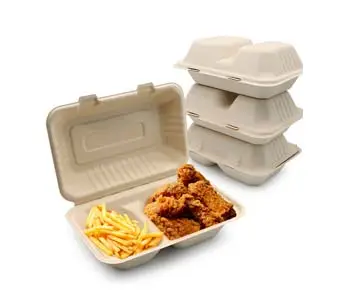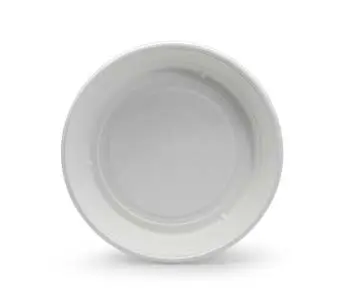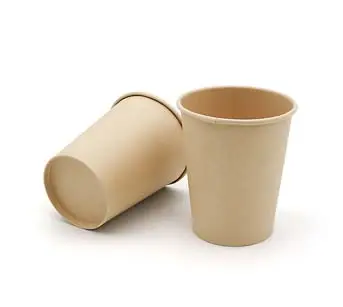Table of Content
[Hide]
The Era of Eco-conscious Packaging: Biodegradable Food Containers Wholesale
Picture a world where the consumption of goods aligns harmoniously with environmental sustainability. In recent years, the call for greener alternatives has gained substantial momentum, as individuals and businesses alike recognize the urgent need to reduce their ecological footprint. One significant area of concern is the excessive use of single-use plastic food containers, which contribute to pollution and take centuries to decompose.
However, a revolutionary solution has emerged in the form of biodegradable food containers. These innovative products offer a sustainable alternative that combines functionality with eco-friendliness.
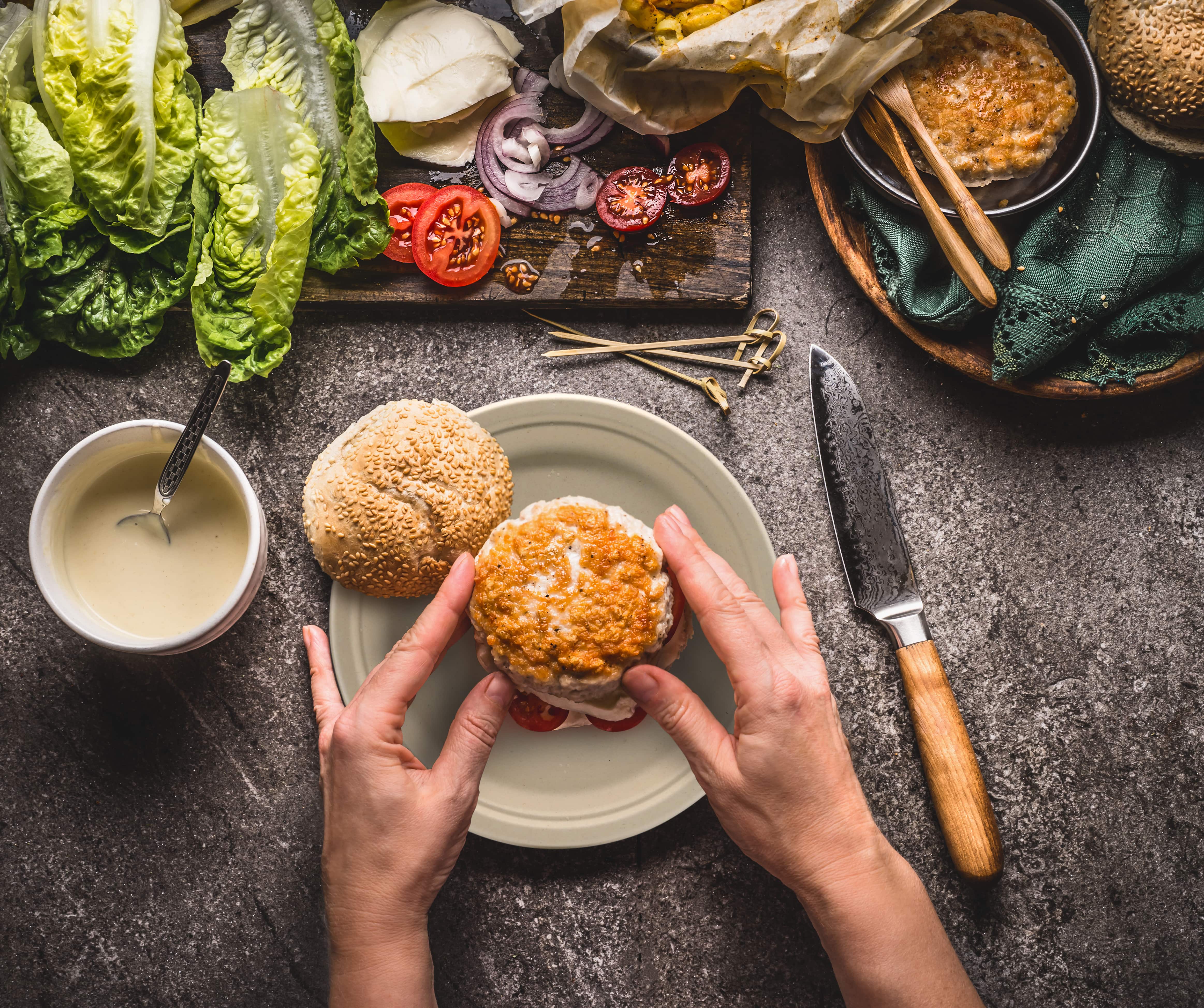
Definition of Biodegradable Food Containers
Biodegradable storage containers are specifically designed packaging options that are capable of breaking down naturally into non-toxic elements over time, returning to the environment without causing harm or leaving behind lasting pollutants. Unlike traditional plastic containers that linger in landfills for hundreds of years, biodegradable options undergo decomposition processes under specific conditions, such as exposure to moisture or heat. They can be crafted from various materials including plant-based plastics (e.g., PLA or PHA), bagasse (sugarcane fiber waste), or even bamboo.
These sustainable alternatives not only minimize environmental impact but also possess properties necessary for safely storing and transporting food items. By catering to health regulations and industry standards, biodegradable food containers ensure optimal functionality while simultaneously addressing concerns regarding waste management and pollution mitigation.
Growing Concern for Environmental Sustainability
The global community is increasingly becoming aware of the dire consequences associated with unsustainable practices and excessive reliance on non-biodegradable materials. The escalating levels of plastic waste polluting our oceans and contaminating ecosystems have sparked urgent calls for change. People now seek out eco-friendly solutions that can mitigate these environmental challenges by reducing dependence on harmful materials.
As awareness grows, consumers are searching for alternatives that align with their values and contribute positively to a sustainable future. This shift in consumer behavior has prompted businesses across various industries, including the food packaging sector, to reevaluate their practices and adopt more environmentally responsible approaches.
Importance of Wholesale Distribution in Promoting Eco-friendly Alternatives
Wholesale distribution plays a pivotal role in driving the adoption and implementation of biodegradable food containers on a large scale. By providing efficient access to these eco-friendly alternatives, wholesalers facilitate the transition from conventional packaging materials to more sustainable options.
By partnering with manufacturers specializing in biodegradable food containers, wholesale distributors become instrumental in connecting suppliers with businesses seeking greener alternatives. This collaboration ensures a seamless supply chain, making it easier for restaurants, catering services, and other establishments within the food industry to embrace environmentally friendly practices without compromising efficiency or convenience.
Moreover, wholesale distribution enables economies of scale by allowing bulk purchases at cost-effective rates. As businesses transition towards biodegradable packaging solutions on a larger scale, they can reap financial benefits while reducing their ecological impact.
Wholesale distributors act as catalysts for market penetration by actively promoting these sustainable options and showcasing the advantages they offer over traditional single-use plastic containers. In the following sections of this article, we will delve deeper into various aspects of biodegradable food containers wholesale: exploring different types of materials used, highlighting their environmental benefits as compared to traditional options, and discussing the multitude of channels through which wholesalers connect manufacturers with businesses eager to embrace eco-friendliness.
The Beauty of Biodegradability: An Overview of Biodegradable Food Containers
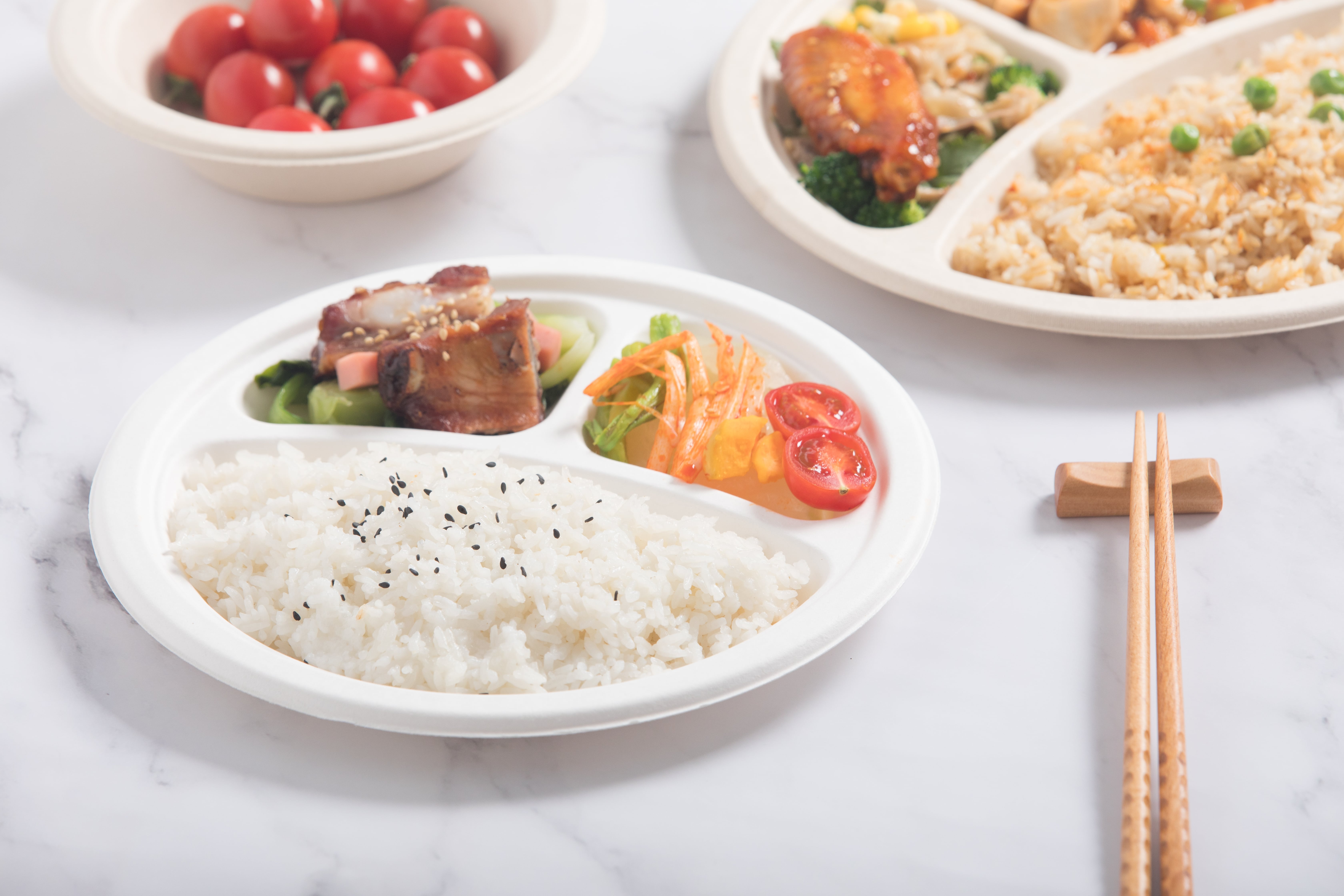
Plant-based Plastics: From Renewable Sources to Natural Elements
Biodegradable food containers have gained immense popularity due to their eco-friendly nature and minimal impact on the environment. One prominent category of these sustainable alternatives is plant-based plastics, including Polylactic Acid (PLA) and Polyhydroxyalkanoates (PHA). Derived from renewable sources like cornstarch or sugarcane, plant-based plastics offer a remarkable solution to the plastic waste crisis.
PLA, commonly derived from fermented corn starch or sugarcane, exhibits impressive biodegradability characteristics. Under specific conditions such as industrial composting facilities with controlled temperature and humidity, PLA containers break down into natural elements, like carbon dioxide and water.
This process ensures that no harmful residues persist in the environment. With its ability to decompose within months rather than centuries, plant-based plastic provides a sustainable alternative without compromising on functionality.
Bagasse Containers: A Second Life for Sugarcane Fiber Waste
Another noteworthy material utilized in producing biodegradable food containers is bagasse. Bagasse is a fibrous residue obtained after extracting juice from sugarcane stalks.
Rather than discarding this waste, it can be transformed into a valuable resource for packaging solutions. Compostable and suitable for both hot and cold foods, bagasse containers embody versatility.
Their fibrous nature grants them excellent insulation properties while remaining grease-resistant. These characteristics not only benefit consumers by keeping their meals at optimal temperature but also provide an eco-friendly alternative to harmful polystyrene foam containers commonly used in the food industry.
Bamboo Containers: Harnessing Nature's Elegance
Bamboo has long been revered as one of nature's most sustainable resources due to its rapid growth and regenerative properties. Harnessing the beauty and strength of bamboo, manufacturers have developed biodegradable containers that offer style and functionality while remaining environmentally conscious.
Bamboo containers provide a sturdy and reliable option for various food types. Their natural strength ensures durability without the need for harmful chemicals or additives.
Additionally, bamboo is highly resistant to moisture, making these containers suitable for both dry and moist foods. As an added benefit, bamboo's elegant aesthetic adds a touch of sophistication to any culinary experience, elevating the perception of sustainable packaging.
Understanding the diverse range of biodegradable materials used in food container production is crucial for promoting sustainable practices in the wholesale distribution industry. Plant-based plastics such as PLA and PHA offer a renewable solution that breaks down into natural elements under specific conditions.
Bagasse containers provide compostable options derived from sugarcane fiber waste, while bamboo containers harness nature's elegance while remaining sturdy and versatile. By embracing these alternatives, businesses can contribute to reducing plastic waste while offering eco-friendly choices to consumers in their quest for a greener future.
Benefits of Biodegradable Food Containers Wholesale
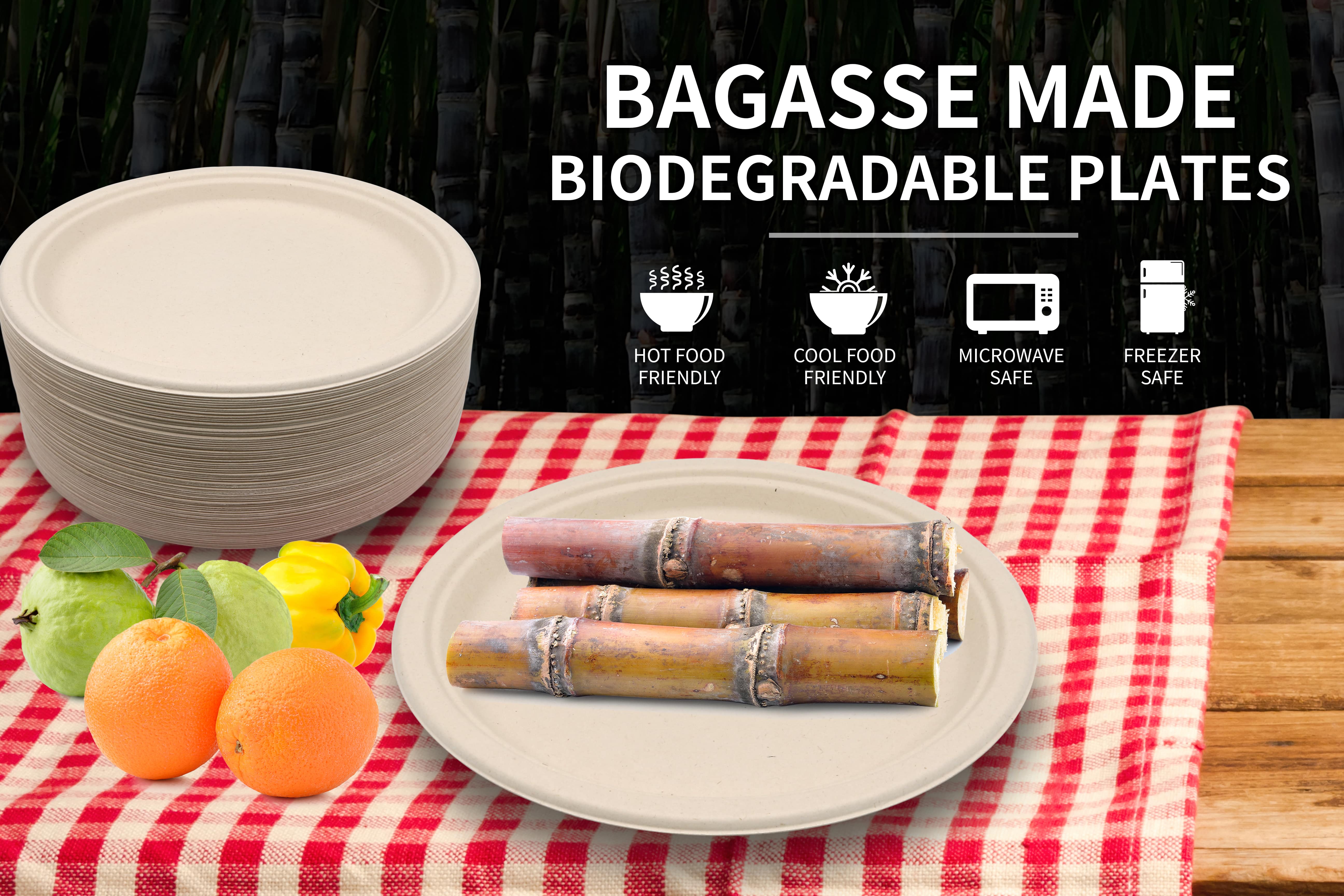
Environmental Impact
Preserving Our Planet, One Container at a Time Biodegradable food containers wholesale offer numerous environmental benefits that contribute to the preservation of our planet. One significant advantage is the reduction in plastic waste accumulation in landfills and oceans.
Traditional single-use plastic containers have become a ubiquitous presence in our daily lives, creating an alarming environmental burden. However, by embracing biodegradable alternatives on a wholesale scale, we can actively combat this crisis.
These eco-friendly containers are designed to decompose naturally over time, significantly reducing the amount of plastic waste that ends up in landfills and polluting our oceans. This reduction not only helps protect marine life and ecosystems but also alleviates the strain on landfill capacities.
Moreover, biodegradable food containers have a decreased carbon footprint compared to their conventional counterparts due to the use of renewable resources. Single-use plastic containers are often made from non-renewable fossil fuels like petroleum or natural gas, contributing to greenhouse gas emissions during production and disposal.
In contrast, biodegradable options utilize materials derived from renewable sources such as plant-based plastics (e.g., PLA or PHA) and natural fibers like bagasse or bamboo. These sustainable materials not only reduce reliance on fossil fuels but also help capture carbon dioxide during their growth cycle, making them an environmentally preferable choice.
Cost-Effectiveness
Saving Money While Saving the Planet One may assume that adopting biodegradable food containers on a wholesale level would come at a higher cost than traditional plastic options. However, when considering long-term expenses and potential savings, it becomes evident that these eco-friendly alternatives can be remarkably cost-effective.
One significant cost-saving aspect lies in potential savings on waste management fees through composting or recycling programs. Many municipalities offer incentives or reduced fees for businesses that actively participate in composting or recycling initiatives.
Biodegradable food containers, being compostable or easily recyclable, allow businesses to take advantage of these programs and potentially lower their waste management expenses. By diverting organic waste from landfills and facilitating its conversion into valuable compost, businesses can contribute to a circular economy while reducing their overall waste disposal costs.
Furthermore, embracing biodegradable food containers wholesale leads to long-term cost reduction by avoiding the continuous purchase of single-use plastic containers. Though initially cheaper per unit, traditional plastic containers need frequent replenishment due to their disposability.
In contrast, biodegradable alternatives are often more durable and designed for multiple uses, making them a cost-efficient investment in the long run. By transitioning to reusable and sustainable packaging solutions on a wholesale level, businesses can significantly decrease their ongoing expenses while demonstrating a commitment to environmental stewardship.
Consumer Appeal
Catering to Conscious Consumers In recent years, there has been an exponential increase in the demand for sustainable packaging options among eco-conscious consumers. People are becoming more aware of the environmental impact of their choices and seek products that align with their values.
This shift in consumer behavior presents an excellent opportunity for businesses that embrace biodegradable food containers on a wholesale scale. By offering eco-friendly packaging options, businesses can cater to this growing market segment and appeal to consumers who prioritize sustainability.
The availability of biodegradable food containers sends a powerful message about a company's commitment to environmental responsibility and resonates with individuals seeking brands that share their values. Moreover, choosing biodegradable food containers as part of wholesale distribution allows businesses not only to meet but exceed customer expectations regarding sustainability.
It positions them as leaders in responsible business practices while differentiating them from competitors still reliant on single-use plastics. Engaging with environmentally conscious consumers through sustainable packaging solutions fosters brand loyalty, enhances reputation, and contributes to a positive brand image in the market.
Embracing biodegradable food containers on a wholesale level offers significant benefits in terms of environmental impact, cost-effectiveness, and consumer appeal. By reducing plastic waste accumulation, decreasing carbon emissions from production, and utilizing renewable resources, these containers actively contribute to preserving our planet.
Additionally, businesses can save money through waste management programs and long-term cost reduction while satisfying the demands of an increasingly eco-conscious customer base. Embracing biodegradable food containers wholesale is not only a responsible choice but also a strategic one that positions businesses as leaders in sustainability.
Wholesale Distribution Channels for Biodegradable Food Containers
Manufacturers and Suppliers
When seeking biodegradable food containers wholesale, direct contact with manufacturers specializing in eco-friendly packaging solutions is a highly effective distribution channel. Engaging directly with these manufacturers provides numerous advantages, including access to the latest product offerings and the ability to customize containers to meet specific business needs. By working closely with manufacturers, businesses can ensure they are getting high-quality products that align with their sustainability goals.
In addition to direct contact, establishing partnerships with suppliers offering a wide range of biodegradable food containers is another valuable distribution channel. These suppliers act as intermediaries between manufacturers and businesses, simplifying the procurement process.
A reputable supplier can provide businesses with a comprehensive selection of biodegradable food container options, catering to different sizes, shapes, and functionalities. This allows businesses to easily find packaging solutions that suit their specific requirements.
The shift towards using biodegradable food containers wholesale is not just an environmental imperative but also a smart business decision. By embracing sustainable alternatives such as plant-based plastics, bagasse containers, and bamboo options, businesses can significantly reduce their ecological footprint and contribute positively towards mitigating plastic waste pollution. By establishing direct connections with manufacturers specializing in eco-friendly packaging or partnering with reputable suppliers offering a wide range of biodegradable options, businesses can ensure they have access to the best quality products while supporting sustainable practices.
This transition opens up new opportunities for differentiation and attracts eco-conscious consumers who actively seek out environmentally responsible brands. The future of wholesale distribution lies in embracing sustainability wholeheartedly.
Biodegradable food containers are not just an alternative; they are the way forward towards building a greener planet while maintaining profitability. Let us seize this opportunity to make lasting changes for the betterment of our environment and ensure a sustainable future for generations to come.
References


